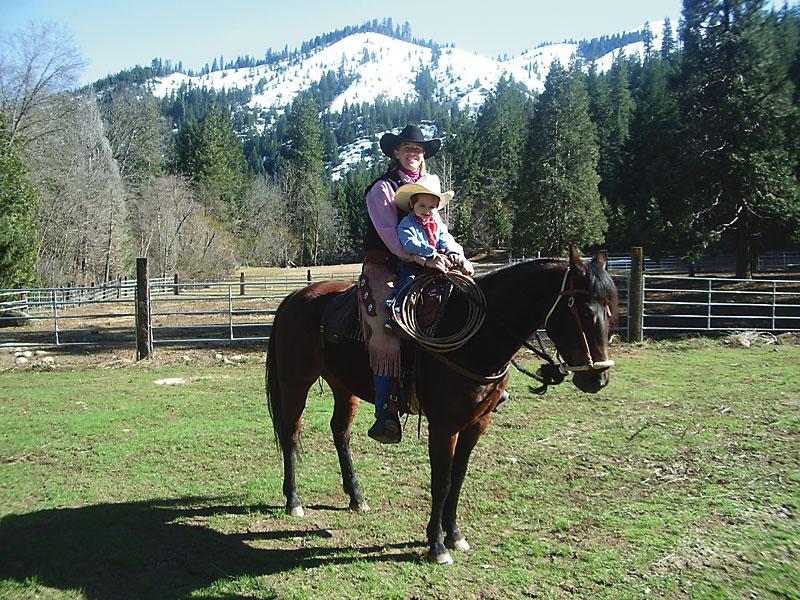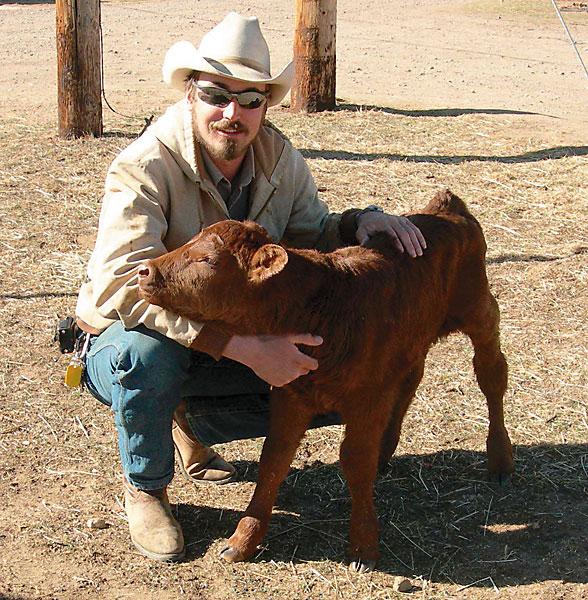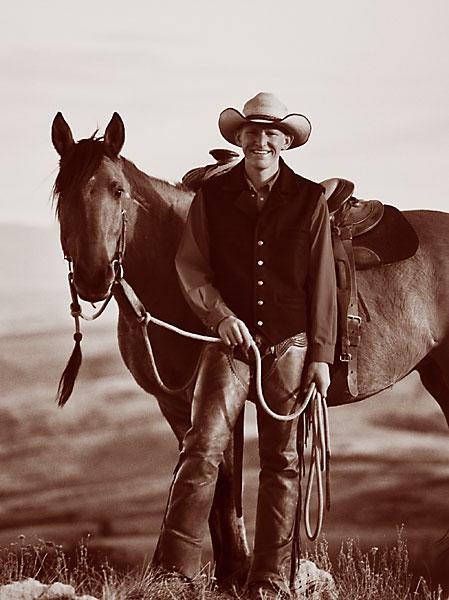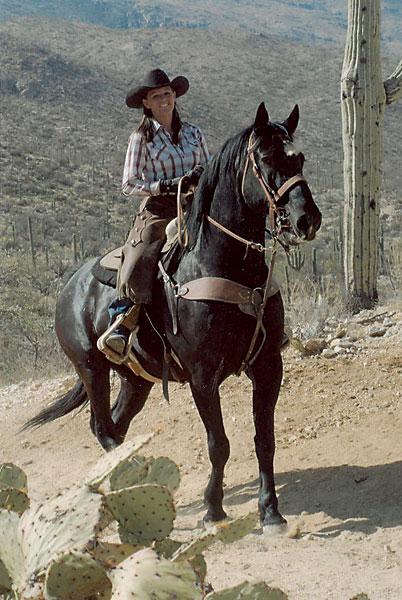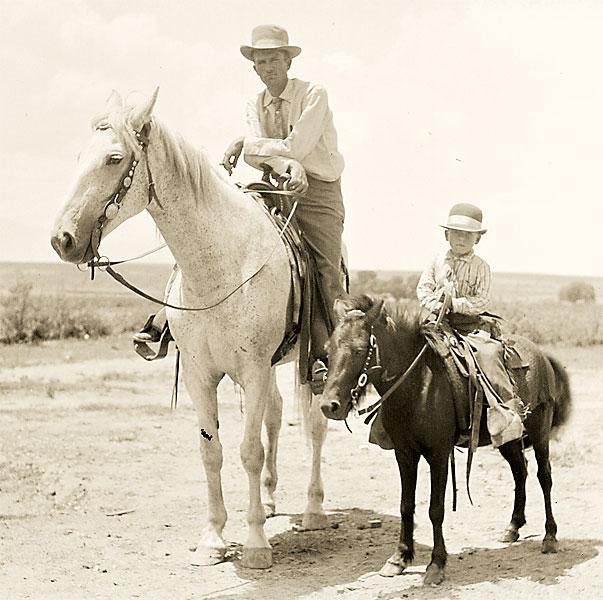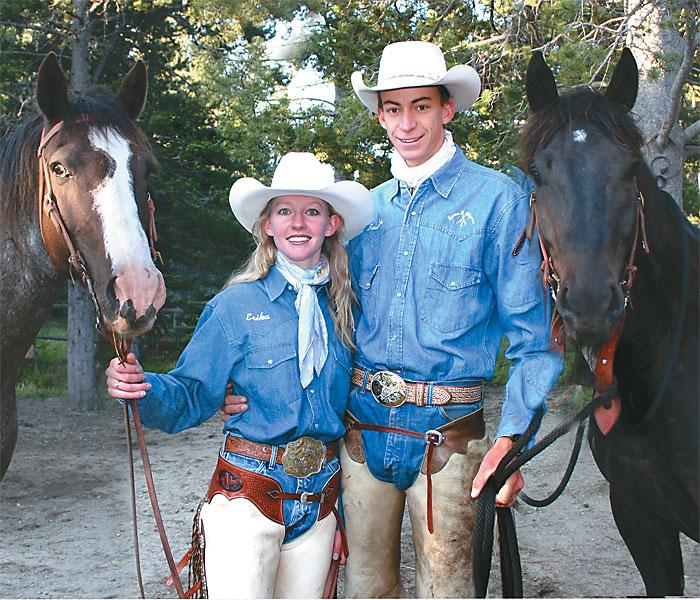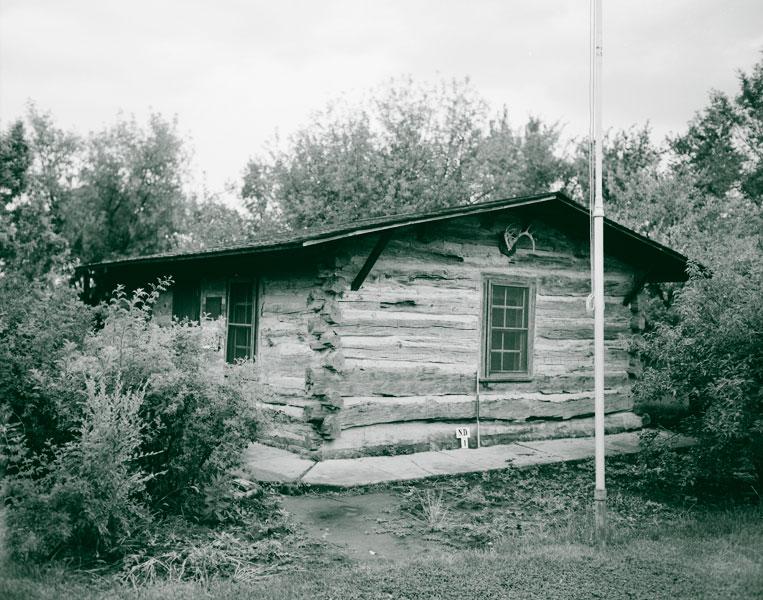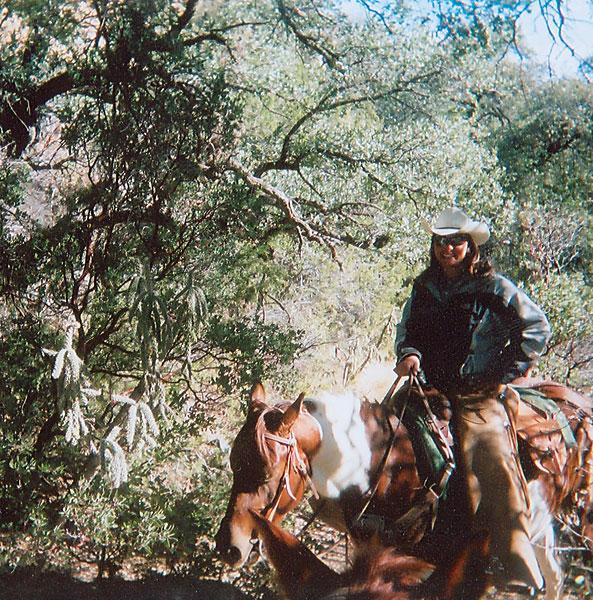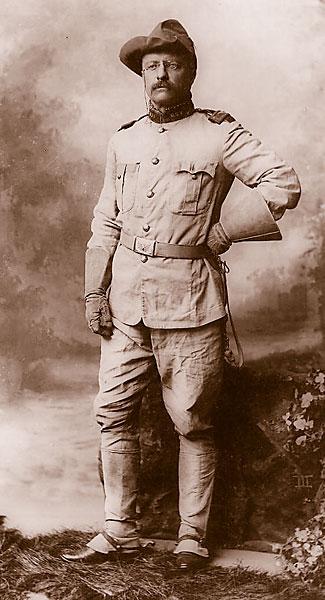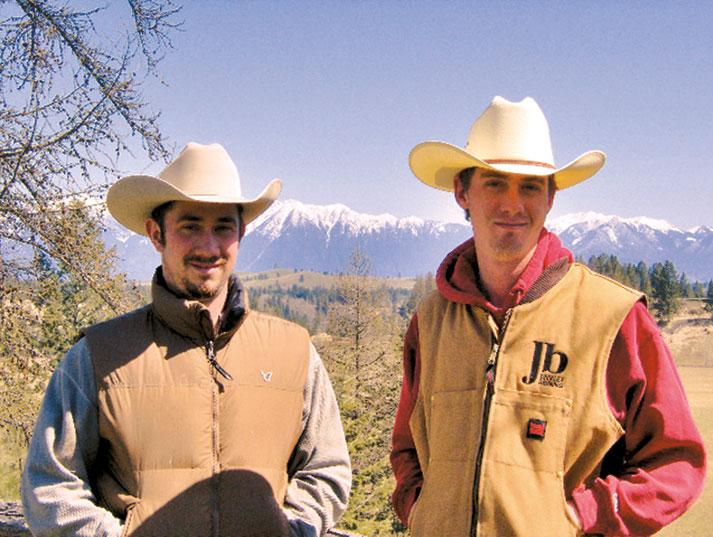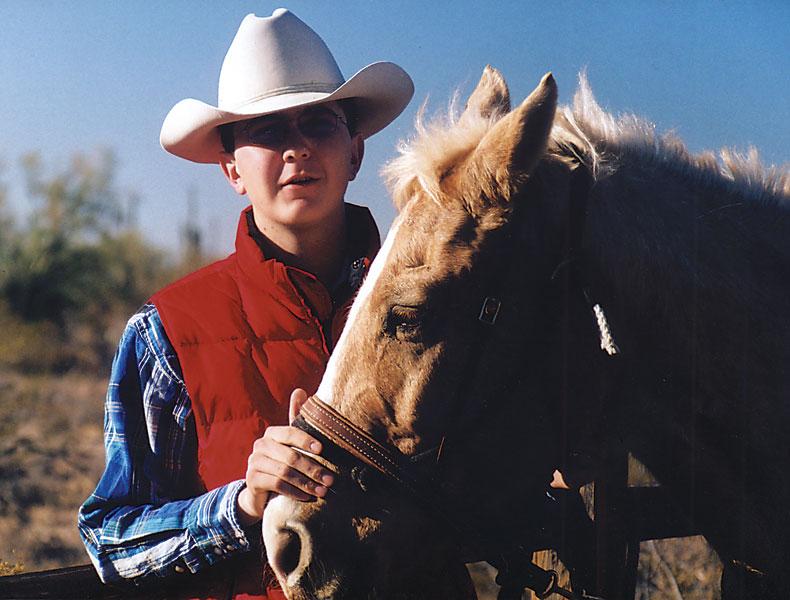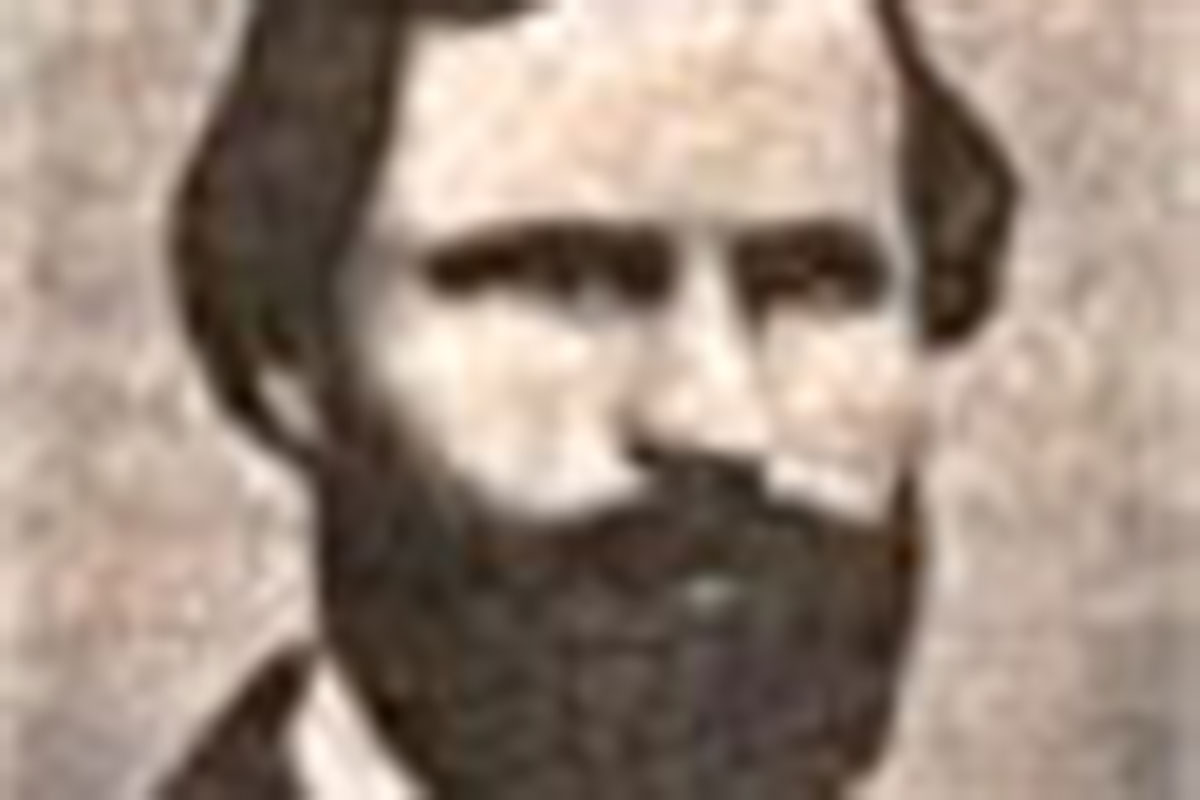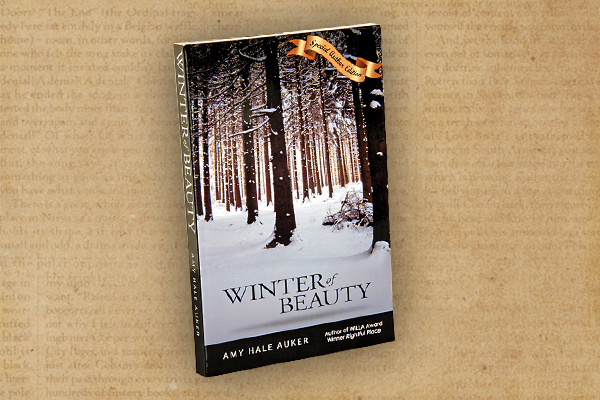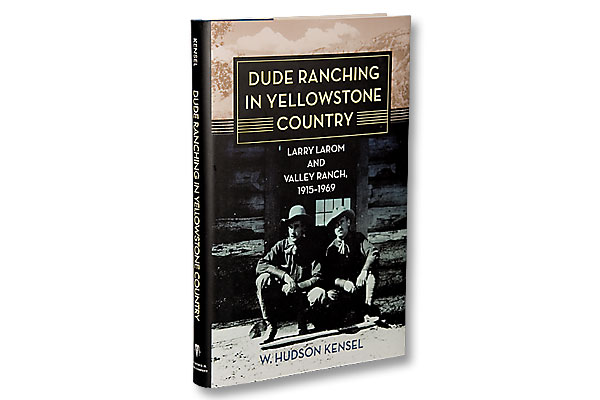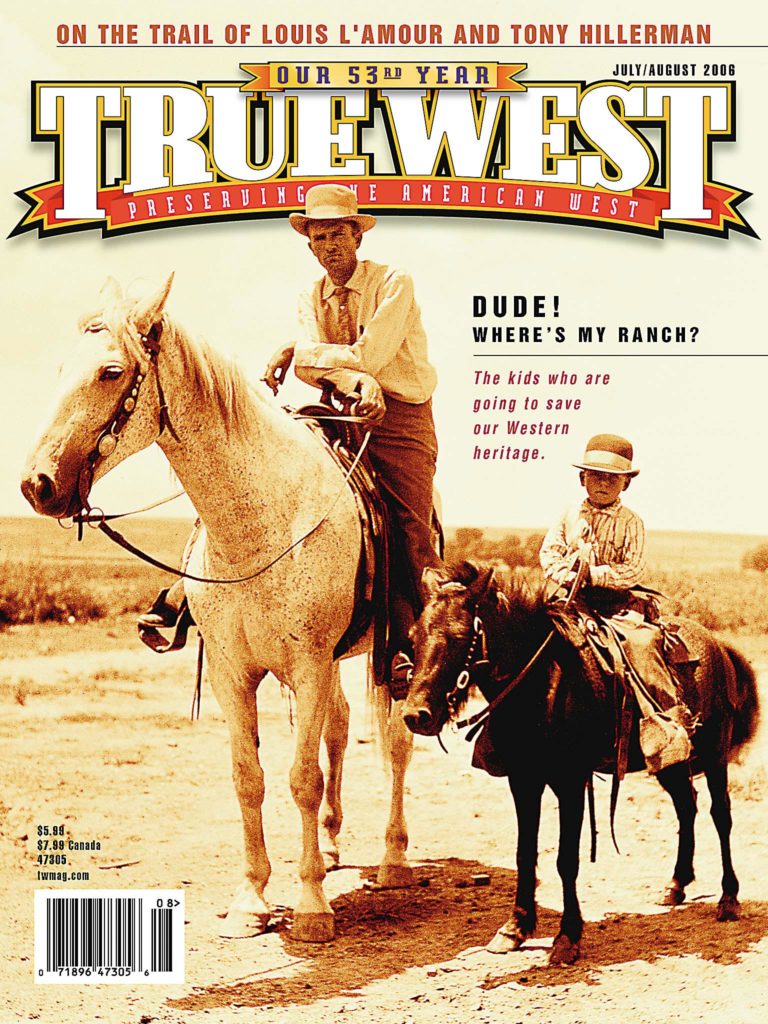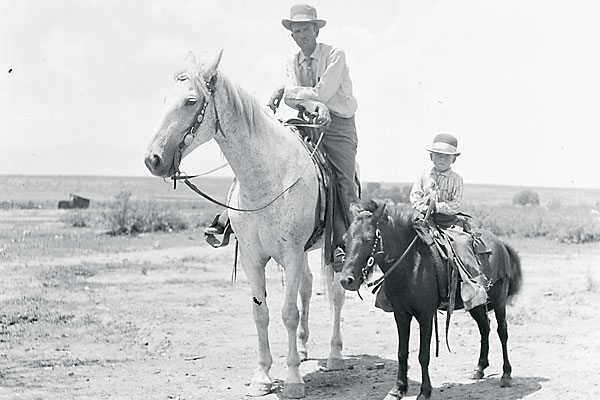 Teddy Roosevelt knew what he was talking about.
Teddy Roosevelt knew what he was talking about.
To appreciate properly his fine, manly qualities, the wild rough-rider of the plains should be seen in his own home. There he passes his days, there he does his life-work, there, when he meets death, he faces it as he has faced many other evils, with quiet, uncomplaining fortitude. Brave, hospitable, hardy, and adventurous, he is the grim pioneer of our race; he prepares the way for the civilization from before whose face he must himself disappear. Hard and dangerous though his existence is, it has yet a wild attraction that strongly draws to it his bold, free spirit.
—Theodore Roosevelt,
Ranch Life and the Hunting-Trail, 1888
Teddy Roosevelt knew what he was talking about. In 1883, at the age of 25, he bought a couple of ranches in the Dakotas. And in 1884—after his wife and mother died on the same day—he decided to live the cowboy life full-time.
T.R. was New York born and bred, an obvious handicap for an aspiring cowhand. Physically, in spite of efforts to build up, he was still considered skinny and weak. His political enemies made fun of his high-pitched voice. And he wore glasses, for cryin’ out loud.
Roosevelt dove in with both feet, like he did with most challenges he faced over the years. He helped build cabins, bunkhouses and corrals. He split rails. He oversaw the development of a cattle herd. He got up at three a.m. to start the workday, which usually included protecting the herd from predators, both animal and human. He hunted for food. He stayed in the saddle for hours on end, trailing cattle that had wandered off. He helped drive them to market. He broke horses. And he did it in the heat of summer and cold of winter.
Teddy admitted that he wasn’t that good at some of the tasks. But by the time he moved back to New York, his Western colleagues considered him a real cowboy. Yeah, he still wore the glasses. But he’d put on about 30 pounds of muscle, gained a new sense of confidence (if that was possible) and Eastern papers even reported that his voice had gained a commanding edge.
Roosevelt knew all about image, and he really played up those cowboy years to show his strength and hardiness. The papers loved it; Thomas Nast drew an 1889 cartoon of T.R. astride a bucking horse that symbolized the spoils system in NY, saying the cowboy had tamed the political bosses. For many people east of the Mississippi, Roosevelt embodied the dream of going west to find adventure—he was the American cowboy.
But the future president also knew that the way of the cowboy was rapidly dying out. Settlers claimed land that had previously been open to grazing, and barbed wire helped the process. Villages and towns sprung up along the trails and railroad routes. Terrible winters in the 1880-90s decimated the great herds and put thousands of cowboys out of work. Some took the outlaw trail—Bill Doolin, Butch Cassidy, Kid Curry. Some went the other way, including Pat Garrett and Charlie Siringo. Others became farmers. Still others became townspeople.
For his part, Roosevelt believed it was a good and necessary change. But he also lamented the loss of something so unique to America. For the rest of his life, he spoke wistfully about those years spent as a cowboy in the Dakotas.
The myth of the cowboy lived on, of course. Owen Wister’s novel, The Virginian, helped create the image of the “Knight of the Plains,” a chivalrous and noble man who helped damsels in distress, armed with a Colt and riding a pony. Dime novels, movies and TV shows burnished the legend, and in the process, they eliminated the sweat and blood and dirt that were commonplace on the Old West ranches. In this dream world, gunfights were daily occurrences, ignoring the fact that most real cowboys usually went unarmed.
All the while, behind the Hollywood glitz, real cowboys continued to run real ranch operations. The work wasn’t that much different than it was when Roosevelt went to the Dakotas—backbreaking, long, often tedious, sometimes dangerous. And just like in the 1880s, the financial rewards were limited. But for a certain kind of person, there was no other life to match it.
That’s still true in 2006.
It’s not clear just how many cowboys there are in the United States. In 2003, the federal Bureau of Labor Statistics counted about 6,500 people engaged in “support activities for animal production”—a category that includes cowboys, as well as farm hands that deal with hogs, chickens, sheep, goats, llamas, etc. So it’s likely that there are fewer than 5,000 working cowboys in this country. Average annual pay? $19,340.
Like their Old West predecessors, most are young—in their 20s. Most grew up on ranches. But unlike the old cowboys, the current generation is pretty well educated; many have college degrees in business or animal sciences. And of course, more than a few are women.
Young people like Chris Nabors of Colorado’s Sylvan Dale Guest Ranch or Jesse Beckley of British Columbia’s Three Bars Cattle & Guest Ranch love their horses and riding across the Western vistas. They don’t like the misconceptions about their jobs. And they’re worried that continued development threatens the ranches and cowboys and the amazing natural beauty that surrounds them.
But what they do is beyond just wrangling horses or herding cattle, and they know it. Chris, Jesse and the others are preserving the Old West at the most basic level. They live it, and they share it with the guests who stay at their ranches. They carry on a tradition and culture that has fired imaginations for 150 years, and they do it without much attention or applause. Theirs is not the West of the pulps or movies or TV. Theirs is the real deal, with all the dirt and sweat and smell. Theirs is a way of life that appeals to a certain kind of person.
We worked with the Dude Ranchers’ Association, which is celebrating its 80th anniversary this year, and they gave us the names of some ranches with respected young ranchers. We asked some of them to answer a few questions about their lives and work, and they kindly obliged. It’s a great chance for you to meet them and get a better understanding of their efforts to keep the Old West alive. We tip our hats to ’em.
Paradise Guest Ranch
Buffalo,WY
Salvador Madrigal
(Born: Guadalajara, Mexico, in 1978)
Erika Madrigal
(Born: Lewistown, Montana, in 1982)
If we could own a ranch anywhere in the West… Some place close to the Sheridan/Buffalo, Wyoming area.
Our passion… Horses and living a life that involves animals, the West, people, art, ranch roping, family and old school values. We enjoy the feeling of going to bed tired every day, knowing we have worked as hard as we possibly can.
We hate it when Easterners… (We plead the fifth!)
We love it when we get to… Share our lives with people who would otherwise never get to experience it, and watching the sun rise from atop a good horse.
My daddy always tells me… Make hay while the sun shines!
Three things my mama taught me:
1. Laughter and time heals all
2. Pie and coffee do make a good breakfast
3. To walk tall and act as if you are in total control
Worst part of ranch life? Bucking hay and pounding fence posts.
Prettiest spots on earth? Wyoming’s Highland Park and Walker Prairie.
The biggest threats to our Western heritage… Rising land prices and a decline of farm and ranch families actually living off of the land
and teaching the Western way of life.
Favorite food? Steak (Did you really have to ask?).
The best food in the world is made by… Ranch wives.
The smartest horse in the world is… The one that even after a long day will run, kick up his heels and have a good roll in the pasture.
Words to live by… “Let every man be quick to listen, slow to speak, slow to anger.”—James 1:19
Wranglers or Levis? Depends on the day, but mostly Wranglers.
Bellota Ranch
Tucson,AZ
Stacy Clark
(Born: Lansing, Michigan, in 1985)
If I could own a ranch anywhere in the West… Sheridan, Wyoming.
My passion… Horses and rodeo.
I hate it when Easterners… Have no respect for the ranch lifestyle.
I love it when I get to… Ride every day.
My daddy always tells me… Ride hard and have fun.
Three things my mama taught me:
1. Do what you love
2. Appreciate everything
3. Keep an open mind
Worst part of ranch life? There is no worst part—the not-so-good parts make me appreciate the very good parts.
Prettiest spot on earth? Anywhere when I’m on a horse.
The biggest threat to our Western heritage… People who just don’t understand it.
Favorite food? Steak.
The best food in the world is made by…My papa.
The smartest horse in the world is…Poco Bueno.
Words to live by… Do what you love and you’ll never work a day in your life. But remember, if everything is always good, you won’t appreciate it; but if everything is always bad, you won’t know what’s good—so keep balance in your life.
Wranglers or Levis? Wranglers.
Latigo Ranch
Kremmling, CO
David George
(Born: Kremmling, Colorado, in 1988)
If I could own a ranch anywhere in the West… Next door to cowboy clinician Bryan Neubert or horse whisperer Buck Brannaman.
My passion… Fine horsemanship and creating pieces of gear with rawhide.
I hate it when Easterners… Are liberals, and they try to implement gun control, develop the land to suit their desires, import animal species from their natural habitat to places they don’t belong and just stick their noses in where they don’t belong.
I love it when I get to… Rope, work cows and ride a good horse with really top hands.
My daddy always tells me… Work as if it is all up to you, but pray as if it is all up to God.
Three things my mama taught me:
1. Look for ways to be a gentleman
2. You can’t be in the wrong place at the wrong time if you’re never in the wrong place
3. “Good enough” is usually not good enough
Worst parts of ranch life? Dealing with government agencies, critters that die, big mortgages.
Prettiest spot on earth? Latigo Ranch, of course.
The biggest threat to our Western heritage… Besides liberals, I think our biggest threat is losing sight of our heritage and our history. When we don’t know how to teach the arts of our past, they quickly get lost.
Favorite food? Beef and bacon.
The best food in the world is made by…My mother.
The smartest horse in the world is… The one I want.
Words to live by…“Love the Lord your God with all your heart, and with all your soul, and with all your mind.” —Matthew 22:37
Wranglers or Levis? Definitely Wranglers.
Sylvan Dale Guest Ranch
Loveland, CO
Chris Nabors
(Born: Bellevue, Nebraska, in 1983)
If I could own a ranch anywhere in the West… Colorado is nice, but I wouldn’t mind Wyoming or Idaho.
My passion… I love hunting and fishing, but lately I spend all my spare time trying to start a small herd of my own.
I hate it when Easterners… Tell me how proud they are that we have running water and electricity and everything. (This really happened.)
I love it when I get to… Work cattle.
My daddy always tells me… How proud of me he is.
Three things my mama taught me:
1. Be careful
2. Say a prayer
3. Enjoy whatever I am doing
Worst part of ranch life? Calving in February. It’s Cold!
Prettiest spot on earth? Can’t say for sure, ’cause I haven’t seen all of the earth. Prettiest spot I have seen was fish camp at Philmont Scout Ranch in Cimarron, New Mexico, in the Sierra Nevada Mountains.
The biggest threat to our Western heritage… Development. It seems everyone wants their house on a little slice of heaven, which is often someone else’s ranch or farm.
Favorite food? Steak—something thick and red.
The best food in the world is made by… Ranchers. We raise Beef.
The smartest horse in the world is… One that works cows.
Words to live by… Trust and Loyalty.
Wranglers or Levis? Wranglers.
Tanque Verde Ranch
Tucson,AZ
Emily Duprey
(Born: Tucson, Arizona, in 1985)
If I could own a ranch anywhere in the West… Arizona.
My passion… Horses.
I hate it when Easterners… Post the trot! [Smoothing out the jolts by rising out of the saddle seat for every other stride of the horse’s forelegs.]
I love it when I get to… Ride a new horse.
My daddy always tells me… The only horses he will ever own are the ones under the hood of his car, but he’s proud of me for pursuing my dream.
Three things my mama taught me:
1. Live for the moment
2. Do what you love, not what pays the most
3. Don’t worry, things will work themselves out
Worst part of ranch life? Feeding (Hay allergies!).
Prettiest spot on earth? Tucson desert.
The biggest threat to our Western heritage… People.
Favorite food? Mexican.
The best food in the world is made by… Sanchez.
The smartest horse in the world is… My Shadow—he knows me better than most people I know.
Words to live by… Don’t squat with your spurs on.
Wranglers or Levis? Wranglers, definitely.
Three Bars Guest & Cattle Ranch
Cranbrook, BC, Canada
Tyler Beckley
(Born: St. Maries, Idaho, in 1980)
Jesse Beckley
(Born: Cranbrook, BC, Canada, in 1983)
If we could own a ranch anywhere in the West… Where we live, in the BC Rockies; we have it all here.
My passion…(Tyler) Sail Fishing; (Jesse) Horses.
We hate it when Easterners… Don’t travel to the West to see it firsthand.
I love it when I get to…(Tyler) Spend the day deep sea fishing; (Jesse) go to horse shows.
Our daddy always tells us… Talk to people—you never know who you may learn something from.
Three things our mama taught us:
1. Respect ourselves and others
2. Open doors for women
3. Be respectful of elders
Worst part of ranch life? Picking stalls.
Prettiest spot on earth? The place you are standing, healthy and happy to be, every morning.
The biggest threats to our Western heritage… Global overpopulation and the constant overuse of our planet causing more and more of our Western lands to be desecrated while feeding the world’s appetite for wood, oil and all the natural resources the West is in reach of.
Favorite food? (Tyler) Chicken Enchilada; (Jesse) Carne Asada.
The best food in the world is made by… Mexicans.
The smartest horse in the world is… Mr. Ed.
Words to live by… Treat others as you wish to be treated.
Wranglers or Levis? Wranglers.
Coffee Creek Ranch
Trinity Center,CA
Alicia Ryan (Owner)
(Born: Livermore, California, in 1973)
If I could own a ranch anywhere in the West… Coffee Creek Ranch in California.
My passion… My family.
I hate it when Easterners… Think northern California is like southern California.
I love it when I get to… Hang out with my boys and take them fishing or riding.
My daddy always tells me… How proud he is of me.
Three things my mama taught me:
1. Treat people with respect
2. Work hard
3. Be honest
Worst part of ranch life? Having to drive two hours to the city. Take-out food would be nice every once in a while.
Prettiest spot on earth? Coffee Creek Ranch.
The biggest threat to our Western heritage… People who are trying to stop the ranches from using forest service land.
Favorite food? Beef.
The best food in the world is made by… Our cooks.
The smartest horse in the world is… Apache.
Words to live by… Everything that happens to you in life, happens for a reason.
Wranglers or Levis? Wranglers.
White Stallion Ranch
Tucson,AZ
Steven True
(Born: Tucson, Arizona, in 1988)
If I could own a ranch anywhere in the West… I love the location where my family’s ranch is already.
My passion… To one day run my family’s ranch, which my grandparents started in 1965. It was homesteaded in 1936, so some buildings are 70 years old.
I hate it when Easterners… Think we are a bunch of backward rednecks.
I love it when I get to… Lead trail rides.
My daddy always tells me… That nothing in life is free.
Three things my mama taught me:
1. Be respectful of others
2. Always do your best
3. Always tell the truth
Worst part of ranch life? Difficult guests.
Prettiest spot on earth? The view of Safford and Panther Peaks as you come over Suicide Pass.
The biggest threats to our Western heritage… Development.
Favorite food? Our BBQ ribs and chicken.
The best food in the world is made by… Judy, our cook of 41 years.
The smartest horse in the world is… My horse, Mojito.
Words to live by… The only place success comes before work is in the dictionary.
Wranglers or Levis? No question. Wranglers, of course.
Photo Gallery
Trinity Center, CA
Alicia Ryan
Loveland, CO
Chris Nabors
Kremmling, CO
David George
Tucson, AZ
Emily Duprey
Parents have been passing on their ranching legacy since the good old days, just as Frank Moson, general manager of the OR Ranch in Arizona, did with his four-year-old son “Cowboy Moson” (above). But some of today’s kid ranchers actually come from a non-ranching family.
– Courtesy Erwin E. Smith Collection of the Library of Congress on Deposit at the Amon Carter Museum in Fort Worth, Texas; Nitrate Negative 1909, LC.S59.363 –
Buffalo, WY
Salvador Madrigal and Erika Madrigal
– True West Archives –
Tucson, AZ
Stacy Clark
– True West Archives –
Cranbrook, BC, Canada
Tyler Beckley
Jesse Beckley
Tucson, AZ
Steven True


